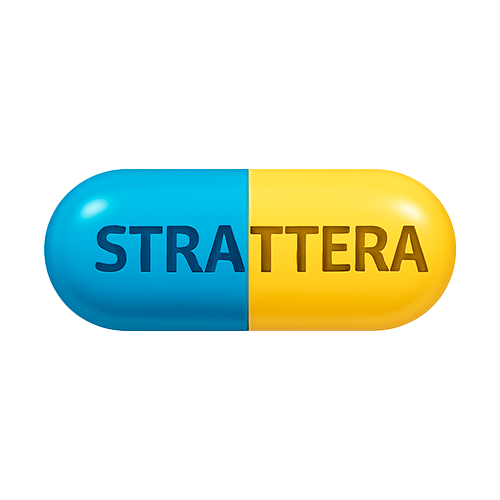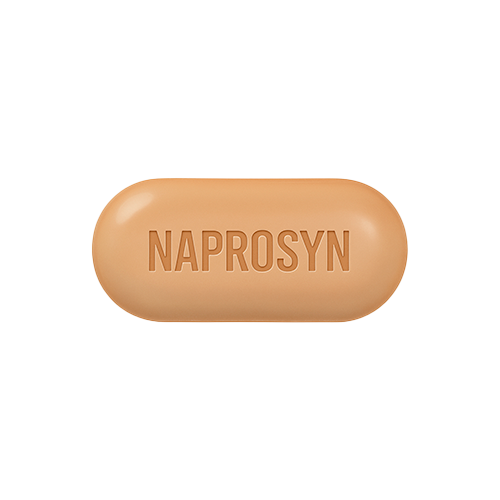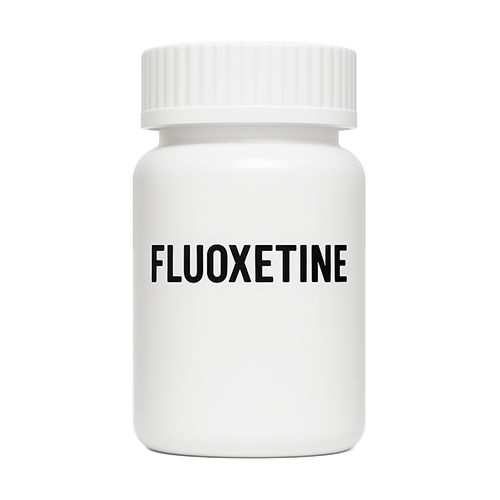- Product Description
- Indications
- How to Take Dramamine
- Contraindications
- Side Effects
- Dramamine buying guide: doses, pricing, and country-specific options
- Buying Dramamine online with confidence
- Where Dramamine is sold offline and what to expect at the counter
- Dramamine price: what it costs and why the numbers vary
- Current retail price snapshot by country and product
- Buying Dramamine 50 mg (Original Formula): what it is and what to pay
- Price reference for Dramamine Original 50 mg vs generic dimenhydrinate 50 mg
- Buying Dramamine 25 mg chewables (kids and sensitive swallowers)
- Buying Dramamine Less Drowsy 25 mg (meclizine): when it is the better purchase
- Generic Dramamine and brand alternatives: what counts as “the same”
- Pros and cons of Dramamine products for travel
- Buying Dramamine in the USA
- Offline buying checklist in the USA
- Buying Dramamine or equivalent products in Canada
- Buying Dramamine or local equivalents in Australia
- Buying Dramamine in the UK (and when a UK-licensed alternative is the smarter choice)
- Online vs offline: practical differences that affect the purchase
- Value strategies: insurance, memberships, and the “no-insurance” reality
- Commercial “quick picks” by travel scenario
- Market signals: how popular products behave in real retail channels
Product Description
Dramamine is a well-known over-the-counter medication used to prevent and relieve motion sickness symptoms, including nausea, dizziness, and vomiting. It works by blocking histamine H1 receptors and central m-cholinoreceptors, helping to stabilize the inner ear’s vestibular system. This action primarily affects the otolith organs, and at higher doses, it also influences the semicircular canals, making it effective in reducing balance-related discomfort. In addition to its antiemetic effect, Dramamine offers sedative, mild anti-allergic, and appetite-suppressing benefits. Relief typically begins within 15 to 30 minutes of intake and lasts for 3 to 6 hours, providing dependable support during travel or vestibular disturbances.
Indications
- Prevention and treatment of motion sickness (kinetosis), including sea and air sickness
- Relief from vestibular and labyrinthine disorders such as dizziness, nausea, and vomiting (excluding those caused by chemotherapy)
- Management of Ménière’s disease symptoms
How to Take Dramamine
For adults and children aged 12 and older, the recommended dose is 50 to 100 mg taken two to three times daily. The total daily intake should not exceed 350 mg. Children aged 7 to 12 years may take 25 to 50 mg two to three times per day, while those aged 3 to 6 years should take 12.5 to 25 mg two to three times daily. The tablets are best taken before meals. For motion sickness prevention, a dose of 50 to 100 mg should be taken approximately 30 minutes prior to travel.
Contraindications
- Epilepsy
- Acute exudative or herpetic dermatosis
- Children under 3 years of age
- Known hypersensitivity to any component of the drug
- Use during pregnancy is not recommended
- If use is necessary during breastfeeding, nursing should be discontinued
Side Effects
Nervous system: drowsiness, dizziness, headache, fatigue, impaired concentration, restlessness, nervousness, and occasional insomnia. Rarely, users may experience visual disturbances, including reduced night vision and altered color perception.
Digestive system: dry mouth, nausea, vomiting, and decreased appetite.
Respiratory system: dryness of nasal mucosa and thickened bronchial secretions.
Cardiovascular system: low blood pressure and tachycardia.
Allergic reactions: skin rash, bronchospasm, angioedema, and drug-induced dermatitis.
Other: hemolytic anemia and difficulty with urination may rarely occur.
Dramamine buying guide: doses, pricing, and country-specific options
Buying Dramamine online with confidence
Legitimate Dramamine products are widely sold online, but the experience varies sharply by seller. The safest path is to buy from a national pharmacy chain, a big-box retailer with verified marketplace controls, or a well-known travel-health retailer that lists the exact product name, active ingredient, and package count. A trustworthy listing includes a clear photo of the outer carton, an NDC (United States) or comparable product identifier where applicable, an expiration date policy, and a return process for temperature- or seal-related issues.
When ordering, match the front-of-box “Dramamine” line with the active ingredient. “Dramamine Original Formula” is dimenhydrinate (commonly 50 mg tablets). “Dramamine Less Drowsy” is typically meclizine (often 25 mg tablets) and is a different medicine with different timing and duration. If a listing mixes these names, omits the active ingredient, or uses stock images with no package details, it is a common marker of poor inventory control.
For online purchases shipped across borders (especially into the UK or Australia), confirm import rules and treat “UK stock” claims cautiously unless the seller is a regulated pharmacy. Avoid “loose blister strips,” partially opened cartons, or unusually low prices for sealed branded packs. For motion-sickness medicines, buying from a regulated channel matters because potency and labeling accuracy are safety issues, not just convenience details.
Where Dramamine is sold offline and what to expect at the counter
In the United States, Dramamine is commonly stocked in the motion-sickness aisle at pharmacies and mass retailers, alongside generic dimenhydrinate and meclizine. In Canada, the best-known local equivalent is Gravol (dimenhydrinate) rather than the Dramamine brand name, though cross-border availability varies by store. In Australia, products containing dimenhydrinate are commonly sold under travel-sickness brands such as Travacalm Original, and store staff may direct customers to those options by default.
In the UK, Dramamine-branded products are not as routinely stocked in high-street pharmacy chains as UK-licensed motion-sickness medicines such as cinnarizine (for example, Stugeron) or hyoscine hydrobromide (for example, Kwells). That difference changes how people buy: UK shoppers often choose a UK-licensed alternative in-store, or purchase imported Dramamine online from a marketplace seller. If the goal is “Dramamine specifically,” online is usually the practical route in the UK, while “a motion-sickness tablet with similar intent” can be handled in-store.
Dramamine price: what it costs and why the numbers vary
Dramamine pricing depends on three things: the active ingredient, the package size, and whether the product is brand or generic. Brand-name Dramamine often costs more per dose than a retailer’s generic dimenhydrinate (for Original Formula) or generic meclizine (for Less Drowsy). Travel season also affects shelf pricing; motion-sickness products tend to be promoted heavily during school breaks and peak flight months, and coupon availability can shift the effective price substantially.
Another driver is “convenience per trip.” Smaller packs (8–12 count) have a higher cost per tablet but are popular for single vacations, while larger packs (30–100 count) are the economical option for frequent travelers or families. For cross-border purchases, shipping and duties can outweigh the base price, which is why UK and Australia buyers often find local-brand equivalents to be better value.
Current retail price snapshot by country and product
The table below summarizes typical retail prices observed at major chains and widely used retailers in December 2025. Prices are presented as single-item “buy now” pricing where available and may vary by region, promotions, and membership programs. Package counts matter: always compare the per-dose cost, not the headline price.
| Country | Product (active ingredient) | Common dose form | Typical pack size | Observed retail price | Approx. price per dose |
|---|---|---|---|---|---|
| USA | Dramamine Original (dimenhydrinate) | 50 mg tablets | 36 count | $9.30 | $0.26 |
| USA | Equate Motion Sickness Relief (generic dimenhydrinate) | 50 mg tablets | 100 count | $6.27 | $0.06 |
| USA | Dramamine All Day Less Drowsy (meclizine) | 25 mg tablets | 8 count | $9.99 | $1.25 |
| Canada | Gravol Easy to Swallow (dimenhydrinate) | 50 mg tablets | 10 count | CA$9.99 | CA$1.00 |
| Australia | Travacalm Original (dimenhydrinate blend) | Travel-sickness tablets | 10 tablets | A$7.29 | A$0.73 |
| UK | Stugeron (cinnarizine) | 15 mg tablets | 15 tablets | £5.40 | £0.36 |
| UK | Kwells (hyoscine hydrobromide) | 300 microgram tablets | 12 tablets | £3.99 | £0.33 |
These figures highlight an important reality: “Dramamine price” is not one number globally. Outside the USA, shoppers frequently pay more for small packs, or they buy a local brand that uses the same (or a different) active ingredient under local licensing and labeling rules. If cost per trip is the priority, generic dimenhydrinate in the USA and UK-licensed travel-sickness medicines in the UK often deliver the best value.
Buying Dramamine 50 mg (Original Formula): what it is and what to pay
Dramamine Original Formula is typically dimenhydrinate 50 mg per tablet, used for prevention and treatment of nausea, vomiting, and dizziness associated with motion sickness. For most adults, the buying decision is less about “strength” and more about timing, drowsiness tolerance, and how many doses are needed for the travel window. Larger pack sizes tend to be more economical, and the per-dose difference versus brand can be substantial.
In US retail channels, a common reference point is a 36-count branded pack priced around $9–$17 depending on retailer and promotions, while major-store generics can be around $6 for 100 tablets. For frequent travelers, that math usually favors generic dimenhydrinate unless brand preference is strong or a specific format (such as chewables) is needed. For occasional use, a smaller branded pack may be convenient even if it is less cost-efficient.
From a pharmacy perspective, the “right” purchase is the one that aligns with predictable dosing and minimizes unpleasant sedation. Dimenhydrinate is an antihistamine and drowsiness is common; buying a product that encourages overuse because the pack is “cheap” is not a win. Choose a pack size that matches your travel patterns, and avoid mixing multiple motion-sickness antihistamines unless a clinician has advised that plan.
Price reference for Dramamine Original 50 mg vs generic dimenhydrinate 50 mg
Brand-name Dramamine Original (36 count) has been observed around $9.30 in US mass retail. A widely available generic option (100 count dimenhydrinate 50 mg) has been observed around $6.27 at major retailers, which materially reduces the per-dose cost. If the primary objective is “lowest price for the same active ingredient,” the generic is usually the straightforward choice.
Buying Dramamine 25 mg chewables (kids and sensitive swallowers)
Dramamine chewables are commonly marketed for children and for adults who prefer a chewable format. Many chewable products use dimenhydrinate 25 mg per tablet and are sold in smaller counts designed for weekend trips and family travel. The convenience of chewable dosing is real, but the price per dose is typically higher than standard tablets.
For pediatric use, buying decisions should prioritize age-appropriate labeling and clear dosing instructions. Families often run into trouble by substituting an adult 50 mg tablet and attempting to split it “approximately,” which is not ideal for accurate dosing and can worsen side effects. A chewable product that is designed for children generally provides more predictable dosing and less guesswork during travel.
In US pharmacy channels, small Dramamine chewable packs are commonly priced similarly to adult small packs, often around $9–$10 for an 8-count box at some retailers. For families who travel frequently, a pharmacist can help identify whether a generic chewable dimenhydrinate is available locally, and whether it is appropriate for the child’s age and health profile.
Buying Dramamine Less Drowsy 25 mg (meclizine): when it is the better purchase
“Less Drowsy” Dramamine products commonly use meclizine 25 mg, which is a different antihistamine from dimenhydrinate. Many people choose it for longer travel days because it is often marketed as longer-lasting and easier to tolerate, though individual response varies. From a buyer’s standpoint, the most important step is recognizing that “Less Drowsy” is not a lower-dose version of Original; it is a different active ingredient.
Retail pricing for small Less Drowsy packs can be high on a per-dose basis. An observed price for an 8-count pack is about $9.99, which works out to roughly $1.25 per dose. Because of that, shoppers who need meclizine frequently often compare against store-brand meclizine products (when available) to reduce cost.
Less Drowsy products can be a pragmatic purchase for travelers who must remain functional on arrival (for example, driving after a flight) and have experienced pronounced sedation with dimenhydrinate. However, “less drowsy” is not “non-drowsy,” and the safest plan is to trial the medication before a major trip rather than for the first time on the day of travel.
Generic Dramamine and brand alternatives: what counts as “the same”
There are two practical “generic” pathways depending on which Dramamine product you are matching. For Dramamine Original, the generic match is dimenhydrinate with the same strength and dosage form (commonly 50 mg tablets). For Dramamine Less Drowsy, the generic match is meclizine with comparable strength (commonly 25 mg tablets). When the active ingredient and strength match, the expected therapeutic effect is broadly comparable for most people, although inactive ingredients and tolerability can differ.
Brand alternatives are common outside the USA. In Canada, Gravol is a mainstream dimenhydrinate brand, often selected instead of importing Dramamine. In Australia, travelers frequently buy local travel-sickness brands that contain dimenhydrinate (sometimes in combination formulas) and are readily available at pharmacy chains. In the UK, cinnarizine and hyoscine-based travel-sickness medicines are frequently purchased in regulated pharmacy channels.
For shoppers with specific needs—such as avoiding certain dyes, preferring chewables, or needing a product for children—the best “alternative” is not always the lowest price. In those cases, a slightly more expensive product with clearer dosing and better tolerability is often the more rational purchase, particularly for long trips where side effects are costly.
Pros and cons of Dramamine products for travel
- Pros: Widely available in the USA; multiple formats (tablets, chewables, long-acting/less-drowsy options); effective for many common motion-sickness scenarios (car, boat, plane); easy to pack and dose on the go.
- Pros: Brand recognition helps reduce confusion when shopping quickly at airports and roadside pharmacies; generics can dramatically lower the cost per dose for frequent travelers.
- Cons: Drowsiness is common with antihistamine-based motion-sickness medicines; “Less Drowsy” and “Original” are not interchangeable products and can be accidentally mixed.
- Cons: Small travel packs can be expensive per dose; cross-border purchases can introduce authenticity and labeling risks if sourced from unregulated sellers.
Buying Dramamine in the USA
In the United States, Dramamine is an over-the-counter option and is typically available in national pharmacy chains, supermarkets, warehouse clubs, and major online retailers. For offline purchases, shoppers usually find it in the nausea/motion-sickness section, often next to store-brand dimenhydrinate and meclizine. For online purchases, the most reliable channels are the online storefronts of the same large retailers and pharmacy chains that manage controlled inventory and returns.
Typical observed pricing in December 2025 includes about $9.30 for Dramamine Original 36 count at mass retail and about $9.99 for Dramamine Less Drowsy 8 count at a major pharmacy retailer. A notable cost-saving option is store-brand dimenhydrinate 50 mg, with an observed price around $6.27 for 100 tablets at a major retailer. For buyers optimizing for per-dose cost, the generic frequently wins by a wide margin.
Insurance is not usually the main lever for OTC motion-sickness products in the USA, but some shoppers use HSA/FSA accounts when eligible under their plan rules. Membership pricing, manufacturer coupons, and retailer promotions (buy-one-get-one offers) can reduce the effective cost, especially for branded products. For travelers who only need a few doses, buying at an airport convenience store is possible but usually more expensive than a pharmacy chain near home.
Offline buying checklist in the USA
Confirm the active ingredient (dimenhydrinate vs meclizine), check the package count, and look for intact safety seals. If the traveler is sensitive to sedation, selecting the “Less Drowsy” meclizine product or discussing options with a pharmacist can reduce trial-and-error. If the traveler is buying for a child, use a product explicitly labeled for pediatric dosing rather than attempting to approximate a child dose from an adult tablet.
Buying Dramamine or equivalent products in Canada
In Canada, shoppers commonly purchase dimenhydrinate under the Gravol brand rather than Dramamine-branded cartons. The buying logic is similar: match the active ingredient, choose a pack size that fits the travel schedule, and consider whether sedation is acceptable for the trip. Canadian pharmacy shelves also include other options for nausea, but for motion sickness the dimenhydrinate category is typically prominent.
A commonly observed reference price is CA$9.99 for Gravol Easy to Swallow 50 mg tablets in a 10-count pack at a major Canadian pharmacy retailer. Small pack sizes are convenient but cost more per dose; frequent travelers may prefer larger packs when available. In Canada, pharmacist consultation is often practical and can help shoppers choose between immediate-release tablets, capsules, and formulations designed to be easier to swallow.
For Canadian buyers comparing “Dramamine price” online, imported Dramamine packs can be more expensive once shipping and exchange rates are included. If the goal is simply motion-sickness prevention with dimenhydrinate, buying a Canadian-licensed product is usually the cleaner solution. Travelers with special considerations—pregnancy, older age, glaucoma, urinary retention, or complex medication regimens—should treat “OTC” as “still a medicine” and confirm suitability with a pharmacist.
Buying Dramamine or local equivalents in Australia
In Australia, travelers frequently buy travel-sickness products from large pharmacy chains, and staff may point to local brands that match the intended effect. Dimenhydrinate-containing products are available and are often positioned as long-journey options. For many shoppers, the practical decision is between a local travel-sickness brand, a scopolamine/hyoscine-type option (when appropriate and available), and non-drug approaches for milder symptoms.
An observed retail example is Travacalm Original 10 tablets priced about A$7.29 at a major discount pharmacy retailer. Because products can differ in composition and labeling, Australian buyers should read the active ingredients panel carefully rather than buying based purely on brand recognition from the USA. If purchasing online, choose established pharmacy retailers that display ingredient details, age indications, and cautions clearly.
Australia’s geographic realities also shape buying behavior: for remote travel, buyers often purchase enough for the full itinerary because access to pharmacies may be limited. Buying the right pack size up front reduces the temptation to ration doses in rough seas or long bus rides. For frequent motion-sickness sufferers, discussing a predictable regimen with a pharmacist before a major road trip can prevent unpleasant surprises.
Buying Dramamine in the UK (and when a UK-licensed alternative is the smarter choice)
In the UK, the Dramamine brand is not consistently stocked in mainstream high-street chains in the way it is in the USA, and many shoppers instead buy UK-licensed motion-sickness medicines. Common in-store options include cinnarizine tablets (for example, Stugeron) and hyoscine hydrobromide tablets (for example, Kwells). These products can be purchased through regulated pharmacy channels with an online questionnaire or in-store pharmacist oversight, which improves suitability screening compared with anonymous marketplace listings.
Observed prices in December 2025 include about £5.40 for Stugeron 15 tablets and about £3.99 for Kwells 12 tablets at a leading UK pharmacy chain. For shoppers determined to buy “Dramamine UK,” imported Dramamine is often found via marketplace sellers, but pricing and authenticity controls vary widely. For that reason, many UK travelers choose a UK-licensed option for routine travel sickness and reserve imported Dramamine for situations where it has been personally tested and tolerated.
From a pharmacy standpoint, the “best” purchase in the UK is usually the product with clear UK labeling, straightforward dosing guidance, and a regulated supply chain. For individuals who have used dimenhydrinate successfully in the past and want the same active ingredient, it can be appropriate to look for dimenhydrinate listings; however, import sourcing should be treated with the same caution used for any medicine purchased outside standard pharmacy channels.
Online vs offline: practical differences that affect the purchase
Online buying is often chosen for convenience, bulk savings, and access to specific variants (such as a preferred chewable format). Offline buying is often chosen for immediate access—especially right before travel—and the ability to ask a pharmacist a quick question about drowsiness, interactions, or pediatric use. The correct channel depends on the traveler’s time horizon and tolerance for substitution.
For many shoppers, the deciding factor is timing: motion-sickness medicines work best when taken on schedule, so running out on the day of travel is a predictable problem. Purchasing online a week or two before travel reduces that risk and gives time for a “trial dose” in a safe setting. Offline purchasing remains valuable for last-minute needs or when a pharmacist’s judgment is useful due to medical complexity.
| Factor | Buying online | Buying offline (in-store) |
|---|---|---|
| Speed | Best when planned ahead; shipping time varies by country and retailer | Immediate access, useful for last-minute travel |
| Selection | Often wider (specific variants, larger pack sizes, generics) | Usually limited to top sellers in the motion-sickness aisle |
| Price transparency | Easy per-dose comparison across pack sizes; coupons may apply | Fewer pack-size options; promotions can be strong but less searchable |
| Supply-chain confidence | High with pharmacy chains; variable with third-party marketplace sellers | High when purchased from regulated pharmacies and major retailers |
| Clinical support | Limited; relies on written labeling and customer service | Access to a pharmacist for quick suitability and interaction screening |
| Best fit | Frequent travelers, families stocking up, shoppers comparing generics | Last-minute travel, first-time users, complex medical histories |
Value strategies: insurance, memberships, and the “no-insurance” reality
Because Dramamine and many equivalents are OTC, traditional prescription insurance often does not directly reduce the shelf price. In the USA, some consumers use HSA/FSA funds for eligible OTC purchases depending on plan rules, which changes out-of-pocket impact without changing sticker price. Membership clubs and retailer loyalty programs can also shift the effective cost, particularly for branded products.
For shoppers without any coverage advantages, the most consistent cost-control strategy is to match the active ingredient and buy a larger pack size when the product will be used repeatedly. Generic dimenhydrinate for “Original Formula” needs and generic meclizine for “Less Drowsy” needs are often the lowest-cost options per dose when sourced from reputable retailers. In countries where Dramamine is not commonly stocked, buying a locally licensed product frequently offers better value than importing a US brand pack.
One caution: saving money should not push a traveler toward self-medicating beyond the label. Motion-sickness antihistamines can impair driving and coordination, and combining multiple sedating medicines can be risky. The best value purchase is the one that the traveler can use predictably and safely, with minimal side effects that disrupt the trip.
Commercial “quick picks” by travel scenario
Short car trips and mild symptoms: A small pack of a locally available travel-sickness medicine is usually sufficient. In the USA, Dramamine Original 50 mg or a generic dimenhydrinate pack is commonly chosen; in the UK, a UK-licensed option such as cinnarizine or hyoscine may be the practical in-store purchase.
Boat trips, cruises, and long travel days: Many travelers prefer a longer-duration option and plan dosing in advance. In the USA, shoppers commonly compare Dramamine Less Drowsy (meclizine) against store-brand meclizine for cost control. In Australia, many travelers use local products marketed for longer journeys and buy enough for the entire itinerary.
Families traveling with children: Choose a product explicitly labeled for pediatric use and confirm age guidance on the carton. Chewables can be easier for children and reduce dosing uncertainty, even if the per-dose cost is higher. For complex situations—children with asthma, seizure disorders, or multiple medicines—pharmacist input is worth the brief stop.
Market signals: how popular products behave in real retail channels
For buyers who use “social proof” as a practical heuristic, large retailers often display rating counts that reflect high sales volume over time. For example, a mass-retail listing for Dramamine Original 36 count has shown hundreds of ratings, while a widely stocked generic dimenhydrinate listing has shown thousands of reviews—consistent with the reality that many shoppers choose generics for repeat purchases. In the UK marketplace ecosystem, some imported Dramamine listings are advertised with multi-thousand “sold” counters, indicating steady demand among buyers who specifically want the US brand.
These signals are not a substitute for supply-chain verification, but they do help explain why pricing and availability are stable for top sellers. High-turnover products are less likely to be near-expiry and more likely to be replenished consistently. When choosing between similar listings online, a high-turnover, clearly labeled product from a regulated seller is typically a more reliable purchase than a bargain listing with sparse details.











Reviews
There are no reviews yet.